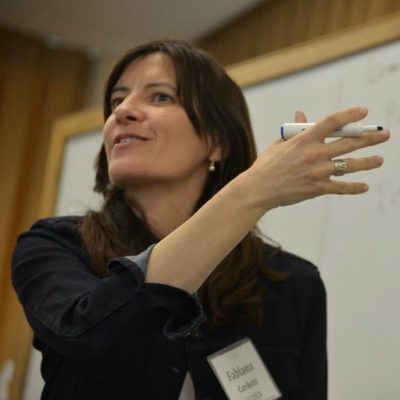Adam Laats (SUNY Binghamton), “Evolving from Humble Roots”
Evolving from Humble Roots
Adam Laats, Binghamton University (SUNY)
Too often, tactics in our continuing culture wars can be brutal and unforgiving. When it comes to the touchy subjects of creationism and evolution, pundits shoot first and ask questions later. Creationists call evolution supporters devilish and deluded, heirs of Hitler as much as Darwin. Evolution supporters call creationists ignorant, predatory child abusers.
Historian Adam Laats offers another approach. In this book project, Laats examines American creationism as it really is, not the cartoonish caricature so often in the headlines. In his previous work, including books such as Fundamentalist U: Keeping the Faith in American Higher Education (Oxford University Press, forthcoming); The Other School Reformers: Conservative Activism in American Education (Harvard University Press, 2015); and Teaching Evolution in a Creation Nation (with co-author Harvey Siegel, University of Chicago Press, 2016); Laats has explored the history of creationism in American culture and education. In this book, Laats draws from a wider variety of academic fields—including political science, anthropology, and cognitive psychology—to offer a nuanced view of American creationism beyond culture-war distortions.
True, creationist radicals are often guilty of self-serving delusion. From Kentucky’s Creation Museum to the Texas school board to the Trump White House, creationists double down on their outlandish claims about culture, religion, and science. But evolution supporters tend to condemn without really understanding. In order to make any progress in our creation/evolution battles, both sides need to begin with a dose of intellectual humility, a hard look in the mirror to acknowledge how little we actually know about each other.
Manuela Wagner and Fabiana Cardetti, “Investigating the opportunities to engage students in intellectually humble discourse and becoming interculturally competent.”


Principal Investigators: Manuela Wagner and Fabiana Cardetti
Collaborator: Michael Byram
It is clear that students today are facing an increasingly complex world in which intercultural
communication and collaborative problem-solving and critical thinking skills are a sine qua non. Consequently, it has become imperative to address this critical area in current educational goals and school curriculum. Our prior work has focused on the theories of intercultural (communicative) competence (ICC/IComp) (Byram, 1997) and intercultural citizenship (ICit) (Byram, 2008) to address these needs across the curriculum and interdisciplinarily (e.g., Wagner, Cardetti, &; Byram, 2016; Cardetti, Wagner, & Byram, in press). An awareness of prejudice, dogmatism and cognitive biases represent essential components of ICC and ICit and are also central to the theory of Intellectual Humility. In our project we investigate the question whether the combination of these theories can provide a promising foundation to build the needed educational opportunities. Specifically, we explore the relationship between theories of IH and IC because they correlate well with regard to essential characteristics and attention to facilitating communication among people about divisive issues. IC has the advantage that it has already been operationalized in national (Wagner, Perugini, & Byram, 2017) and international contexts (e.g., Byram, Golubeva, Han, & Wagner, 2016). Given that IH and IC theories share essential characteristics, the integration of the two promises a deeper understanding of both, with the potential of facilitating engagement in humble and constructive public discourse. Our preliminary results indeed show promise for the operationalization of IH in ICit (Wagner, Cardetti, & Byram, forthcoming).
References
Byram, M. (1997). Teaching and assessing intercultural communicative competence. Clevedon, UK: Multilingual Matters.
Byram, M. (2008). From foreign language education to education for intercultural citizenship. Tonawanda, NY: Multilingual Matters.
Byram, M., Golubeva, I., Han, H., & Wagner, M. (Eds.) (2016). From principles to practice in education for intercultural citizenship. Bristol, UK: Multilingual Matters.
Cardetti, F., Wagner, M., and Byram, M. (in press). Intercultural citizenship as a framework for advancing quantitative literacy across disciplinary boundaries. In Tunstall, L., Piercey, V., & Karaali, G. (Eds.), Shifting Contexts, Stable Core: Advancing Quantitative Literacy in Higher Education. Washington: Mathematical Association of America.
Wagner, M., Cardetti, F., Byram, M. (2016). Exploring Collaborative work for the creation of interdisciplinary units centered on intercultural citizenship. Dimensions, Special Issue: Focus on Intercultural Competence, 35–52.
Wagner, M., Perugini, D., & Byram, M. (2017) Teaching intercultural competence across the age rage: From theory to practice. Clevedon, UK: Multilingual Matters.
Wagner, M., Cardetti, F., Byram, M. (forthcoming). The Humble Linguist: Enriching Education for Intercultural Citizenship and Intellectual Humility. In E. M. Luef and M. M. Marin (Eds.), The mindful linguist: Interdisciplinary perspectives on language and the brain.
- 2016-17 Awards
Elizabeth McCloskey (WashU): “Profiles In Spirit”
Kelly James Clark (Grand Valley State): “Them Muslims: Overcoming Islamaphobia”
Andrian Bardon (Wake Forest): “Ideology, Bias and Self-Deception”